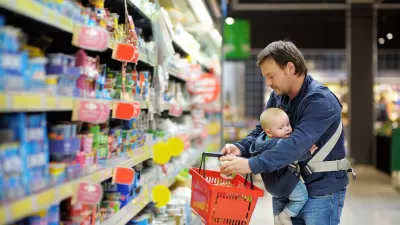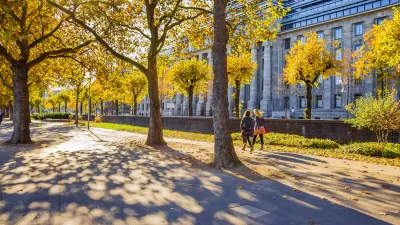Chicago has good news to report in its battle to improve access to fresh healthy food. Since Rahm Emanuel became mayor more than two years ago, the number of residents living in food deserts has declined by 21 percent.
"Chicago’s food deserts are shrinking, thanks to a healthy mix of new and upgraded retail stores, produce carts, urban farms, farmer’s markets and donated CTA buses filled with fruits and vegetables," reports Fran Spielman.
“We’ve made good progress, ... [but] we want to ultimately eliminate food deserts. It’s more than just about public health. It’s about neighborhood vitality, economic development and job creation,” said Michael Negron, the mayor’s chief of policy.
Eliminating food deserts has been one of Mayor Emanuel's signature efforts. "Within 30 days of taking office, he convened a summit of six grocery store executives to confront the issue, showcase maps and a detailed analysis of potential sites and secure commitments for 36 new and upgraded stores," notes Spielman. "He also pushed through legislation expanding the maximum size of community gardens, easing fencing and parking requirements on larger commercial urban farms and allowing urban farms to sell their wares at farmer’s markets."
His efforts seem to be paying off.
FULL STORY: City’s food deserts drying up as healthy choices move in

Maui's Vacation Rental Debate Turns Ugly
Verbal attacks, misinformation campaigns and fistfights plague a high-stakes debate to convert thousands of vacation rentals into long-term housing.

Planetizen Federal Action Tracker
A weekly monitor of how Trump’s orders and actions are impacting planners and planning in America.

In Urban Planning, AI Prompting Could be the New Design Thinking
Creativity has long been key to great urban design. What if we see AI as our new creative partner?

King County Supportive Housing Program Offers Hope for Unhoused Residents
The county is taking a ‘Housing First’ approach that prioritizes getting people into housing, then offering wraparound supportive services.

Researchers Use AI to Get Clearer Picture of US Housing
Analysts are using artificial intelligence to supercharge their research by allowing them to comb through data faster. Though these AI tools can be error prone, they save time and housing researchers are optimistic about the future.

Making Shared Micromobility More Inclusive
Cities and shared mobility system operators can do more to include people with disabilities in planning and operations, per a new report.
Urban Design for Planners 1: Software Tools
This six-course series explores essential urban design concepts using open source software and equips planners with the tools they need to participate fully in the urban design process.
Planning for Universal Design
Learn the tools for implementing Universal Design in planning regulations.
planning NEXT
Appalachian Highlands Housing Partners
Mpact (founded as Rail~Volution)
City of Camden Redevelopment Agency
City of Astoria
City of Portland
City of Laramie




























